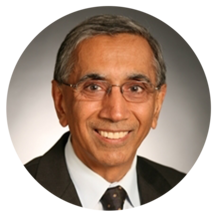About this Presentation
We are experiencing a unique situation that no one could have visualized that the whole world would be at an almost stand still for months altogether. This has resulted in an extreme disruptions for both material and services. In turn these disruptions have created shortages of input materials. Almost all organizations require more than one input material to manufacture finished products. And a shortage of just one input material does not permit making of the finished product. Of course there can be no sale without dispatches. Accordingly disruption in supply of just one part is enough to shrink sales, throughput, and profits significantly. Since supply chain disruptions would create shortages of parts, On Time In Full (OTIF) delivery performance would also be impacted negatively. In turn customers will find justification in delaying the payments. Reduction in profits along with increased working capital required will squeeze cash even more. We all know that the very first step in improving any system is to identify the system’s constraint. In my assessment more than 50% of the organizations in the world will have a constraint in CASH, another 30-35% in supplies, about 10% in orders, and a few 5-10% in operations. Incidentally even organizations that currently do not have a constraint in cash may get into cash constraint subsequently since sales, profits, & cash inflows are likely to go down. Accordingly managing cash will be of extreme importance irrespective of the current constraint. To overcome the above, this presentation will share:: changes required in measurements and policies; use of concept of cash velocity for deciding corrective actions; cash as protective capacity; practical tips for- reducing inventories, and account receivables and managing suppliers with limited cash; collecting additional funds from disputed amounts; increasing throughput through cash velocity based product selection; converting some of the OE into variable expenses; and creating additional credit opportunities. Video length: 1:00. PDF: 22 slides.
What Will You Learn
To help you get the most value from this session, we’ve highlighted a few key points. These takeaways capture the main ideas and practical insights from the presentation, making it easier for you to review, reflect, and apply what you’ve learned.

The speaker emphasizes the importance of maintaining adequate cash reserves in organizations and how COVID-19 has exposed the fallacy of not doing so.
The speaker highlights the non-linear impact of cash, explaining how a small change in money availability can have a significant impact on sales, throughput, profit, and free cash flow.
The speaker provides actionable recommendations for managing a cash crisis, including not laying off people, not increasing sales, reducing working capital, and avoiding large customer orders.
Instructor(s)
Jennifer Eckman

Ms Alka Wadhwa
Alka Wadhwa is an experienced consultant and process improvement expert with over 24 years of expertise in the Theory of Constraints (TOC), Lean Six Sigma, and organizational performance optimization. She has successfully led projects in healthcare, financial services, and manufacturing, driving significant improvements such as a 67% boost in hospital operations and a 140% increase in outpatient visits.
Previously, Alka Wadhwa spent 17+ years at GE Global Research Center, where she led initiatives to enhance various GE businesses through advanced technologies, process redesign, and system optimization. Founder of Better Solutions Consulting, LLC, she specializes in using TOC, Six Sigma, and data analytics to streamline operations and build high-performance teams.
Her work has earned her multiple accolades, including the Empire State Award of Excellence in healthcare.

Dr Gary Wadhwa
Dr. Gary Wadhwa is a Board Certified Oral & Maxillofacial Surgeon with extensive experience in the field. He completed his Oral & Maxillofacial Surgery training at Montefiore Hospital, Albert Einstein College of Medicine in Bronx, NY, and has served as an Attending at prestigious institutions like St. Peters Hospitals, Ellis Hospital, and Beth Israel Hospital in NY. With a career spanning over two decades, he was the former CEO and President of a group specialty practice in NY from 1994 to 2015. Dr. Wadhwa holds an MBA from UT at Knoxville, TN, and has undergone additional training in System Dynamics at MIT, Health System Management at Harvard Business School, and Entrepreneurship and healthcare innovations at Columbia Business School. Committed to expanding access to Oral & Maxillofacial Surgery care, he is currently engaged in a meaningful project to provide healthcare services to underserved populations in inner city and rural areas through non-profit Community Health Centers.
